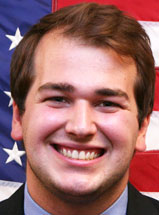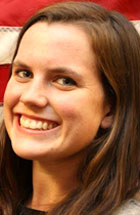March 19, 2014
By Alexandria Zamecnik
The Whitewater Student Government election ballot offers more than just two slates running against each other.
Before the WSG Senate meeting on March 17, two non-binding referendums were to be placed on the ballot. Non-binding referendums are meant to serve as advisers to gauge public opinion.
The referendums originally to be placed on the ballot were:
1. Would you be willing to pay a separate segregated fee ($5/per student/semester) to support a sustainability/green fund?
2. Would you support a campus-wide tobacco ban for the University of Wisconsin-Whitewater?
During the senate meeting on March 17, the senate voted to remove the referendum asking students if they supported a campus-wide tobacco ban, leaving only the sustainability referendum.
Jonathan Fera, intergovernmental affairs director, was responsible for the tobacco referendum that was unanimously approved on March 3. Two weeks later he asked the senate to remove it.

“It’s [Tobacco Referendum] really vague,” Fera said. “I feel as if there is more that can be done.”
Fera said one of his biggest concerns was that the polls are anonymous. The ballot would not be able to tell the difference between a freshman and senior.
“I feel like I jumped the gun,” Fera said. “I apologize for wasting [senates’] time and making [senate] vote.”
After a roll call vote, 12
senators voted to remove the referendum from the ballot. Two senators voted against the removal.
Parliamentarian Johanna Klay voted against the removal of the referendum.
“I believe that there are students that could potentially voice their opinion better in a simple referendum form on the ballot,” Klay said. “It would be an injustice to those students if the referendum was repealed unanimously when it was put on the ballot unanimously.”
While the tobacco referendum was removed, the sustainability referendum remained on the ballot.
Sustainability Director of WSG, Alexandra Labonte, said the sustainability referendum might be right for Whitewater, and WSG is gauging the interest of students.
“Sustainability initiatives that are student-driven will not only save money on campus utility and purchasing bills, but also promote environmental stewardship in students,” Labonte said.
Labonte said although it is difficult to rank UW-Whitewater compared to other schools there is always room for improvement.

The University of Wisconsin-LaCrosse has green funds directly in its tuition. Each UW-LaCrosse student pays $13 a year for sustainability. Other UW schools such as UW-Stout and UW-Eau Claire include sustainability in tuition.
“To improve, we need continued growth of environmental awareness on campus and to create environmental responsibility in our students,” Labonte said.
Nathan Perry and Lucas Tomachek are running for presidency on the same ballot as the referendum.
The Perry/Tomachek slate said they think it is a good idea to have a fund for sustainable projects on campus as long as the funds do not get wasted or go unused.
The other president hopefuls, Robert Emmett and Thomas Ziolkowski, said they are in support of a green fund with a few stipulations.
“We are in support of a green fund, but we need to ensure that controls are put in place so that the funds are used in a way that directly benefits students,” the Emmett/Ziolkowski slate said. “Using student fees for this purpose can be difficult.”

